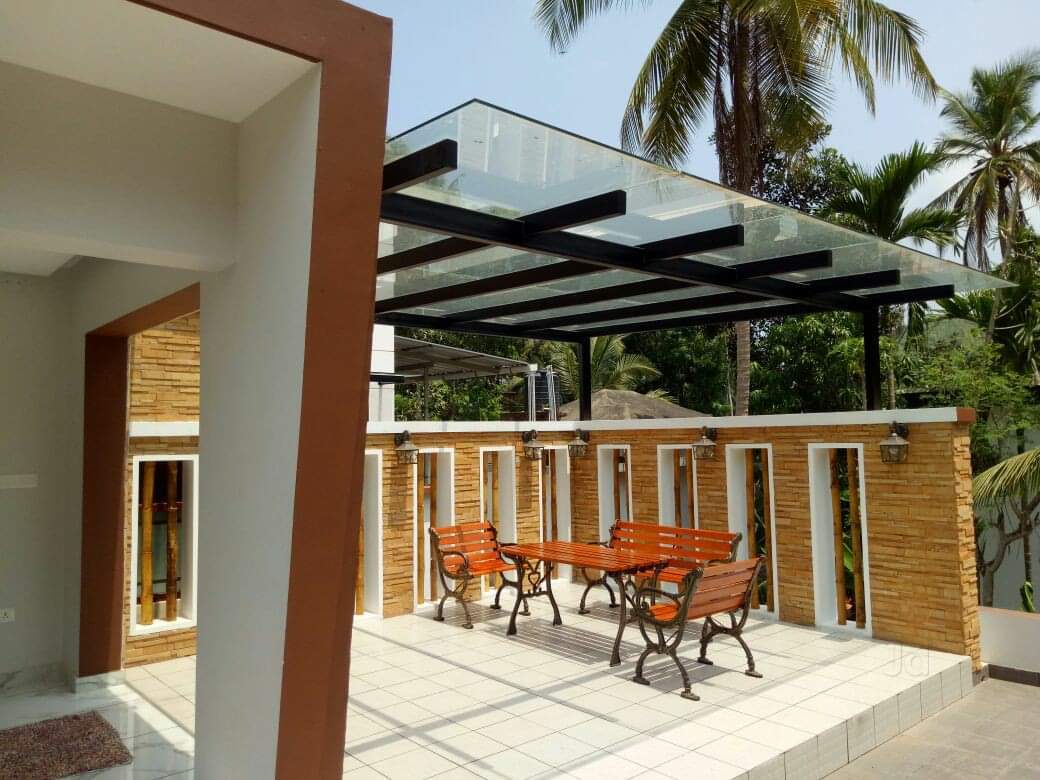A pergola is roofing used to cover an area but still leaving that area exposed to the elements of nature. However, some pergolas have a covering like laminated glass which provides shade against the rain & sun.
Laminated glass is constructed of two plies of glass which are bonded together with interlayers to form a permanent bond. The interlayers work to support and hold the glass to create a strong, uniformed layer even when broken. Laminated glass comes in varying thicknesses and can be created using different glass combinations or coatings to provide different qualities, such as low emissions or increased insulation.
- For use in buildings where heavy rains & wind or other natural disasters are a high risk
- As windows for companies or homes at higher risk of break-ins
- As display cabinets for valuables, such as jewelry stores
- Aquariums or animal enclosures
- Glass floors
- Glass stairs
- Skylights
- Glass roofs
Laminated glass is a fantastic alternative to normal glass, offering a tough, robust structure that is hard to break. Laminated glass is suitable for use in many ways, and is a material that is growing in popularity. If you’re thinking of adding glass to your home or business, you should consider installing laminated glass in its place. If you’re unsure what laminated glass is or are unaware of the benefits it holds, SBF INTERIORS AND OUTDOOR SOLUTIOS LIMITED can help
What are the benefits of laminated glass?
The robust nature and thickness of laminated glass lend it a whole host of benefits:
- Increased security:The strength of laminated glass make it almost impossible to break, so any unauthorised person would struggle to gain entry. Even if a break was to occur, the interlayers holdup the strength of the structure so that widening the gap is extremely difficult to do.
- Reduced emissions:Low-emissivity glass can help to reduce heat gain from the sun, which allows air conditioning to be used less frequently and emissions to be reduced.
- Reduced noise pollution: Installing a thick piece of laminated glass causes noise waves to become disrupted when they travel through the material, helping to reduce noise pollution.
- Increased safety:As the glass doesn’t shatter when broken, there is a reduced risk of someone being cut or injured by shards of glass.
- Protection from natural disasters:In the arrival of natural disasters or volatile weather, laminated glass will remain in its frame, reducing the risk of accidents and making a life-threatening situation slightly safer.
- More design choice:Laminated glazing is available in many colours, tints or tones, and can be manufactured straight or curved for greater versatility in appearance.
